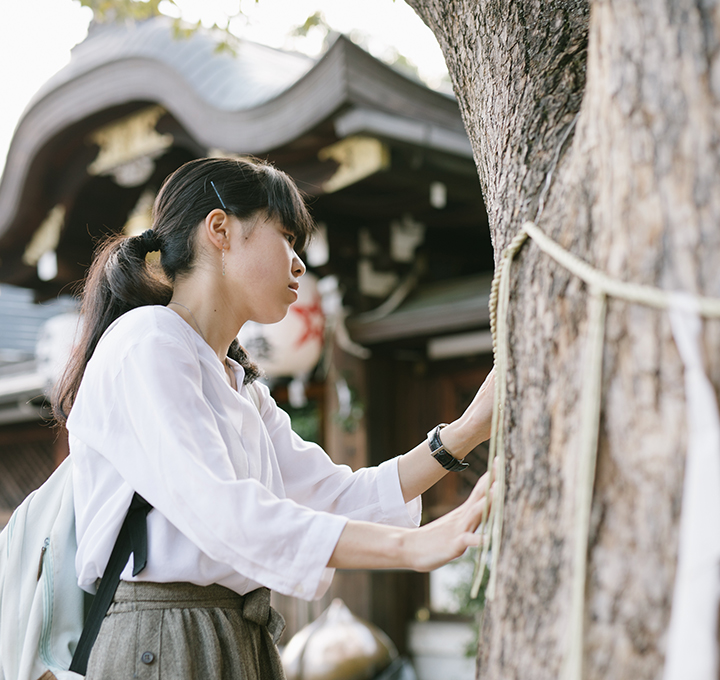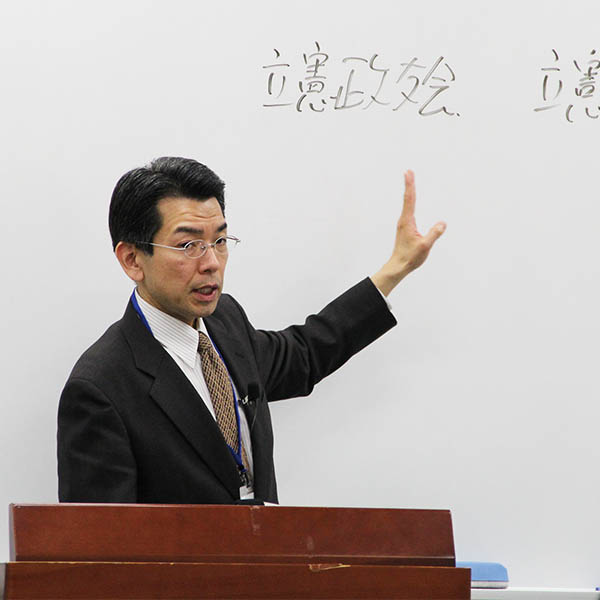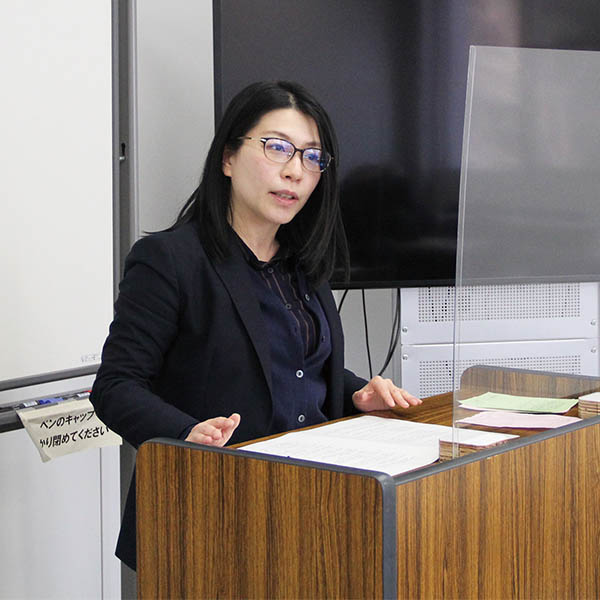
IWAMOTO Shin-ichi
- Specialization
- Modern Japanese History/History of Ideas
Many historical sites and traditions have survived to the present day in Kyoto, including Heian Jingu Shrine and the city’s three major festivals: Aoi Matsuri, Gion Matsuri, and Jidai Matsuri. Students explore their historical backgrounds, attending lectures and conducting fieldwork that takes them to experience these sites and festivals for themselves.
Students gain a comprehensive understanding of the history of the Japanese archipelago from ancient to modern times by analyzing Japan's past from the three standpoints of region, society, and people. In doing so, they develop the multiple perspectives required for historical understanding, from the lifestyles of a people to the structure of its community.

The first year focuses on acquiring the foundational skills necessary for studying at university. Students participate in small-group classes to build the essential language skills necessary for humanities studies—reading, speaking, and writing. They also gain experience analyzing topics from multiple angles—history, literature, society, international studies, and Japanese culture—nurturing a flexible and open-minded perspective.
Foreign language study is also a key focus, fostering cross-cultural understanding.
Languages Offered: English, Korean, French, Spanish, and Chinese
With guidance from faculty members, students carefully design their long-term fieldwork experience. In the second semester, they leave campus for six months of hands-on fieldwork. Through this experience, students cultivate independent thinking, practical skills, and the ability to communicate their findings effectively. The confidence and skills they gain here will be invaluable no matter where their future takes them.
As students compile their research reports from long-term fieldwork, they also gain expertise and research methodologies through courses in their respective fields. They also participate in small-group seminars where they analyze texts, present research, and engage in discussions on key themes. By exchanging ideas and engaging with diverse perspectives, students refine their thinking and deepen their understanding.
Students write a graduation thesis as the culmination of their four years of study, presenting their completed theses at the Graduation Work and Thesis Exhibition in February, just before graduation in March. This exhibition offers a valuable opportunity to receive objective feedback from both within and outside the university.
Japan’s “Traditional Performing Arts” Live On: The example of Yufukuji District’s Festival Music Preservation Society in Togo Town, Aichi Prefecture
This thesis describes the hereto unrecorded history of festival music in the Yufukuji District while cataloging the current situation and issues facing the district's Festival Music Preservation Society. In particular, the thoughts and opinions of the local people (namely that of the preservation society) are incorporated into a consideration of how the region's traditional performing arts are perceived and what it means to safeguard these art forms for the local community today.
The Samurai Who Lost: The Late Edo, Warring States, and Azuchi-Momoyama Periods
I consider the history of the losing samurai in the late Edo, Warring States, and Azuchi-Momoyama periods. There is a tendency to think that only the victors whose names were recorded for posterity forged an era; however, those who were defeated also played their part in history. Therefore, it is necessary to consider the past from multiple angles and not just from one point of view. This thesis examines the Shinsengumi in the late Edo period and the western armies in the Warring States and Azuchi-Momoyama periods.
The Family Crests, Flags, and Battle Standards of the Warring States Period: Their Origins and the Thought Behind Them
This thesis explores the origins and thought behind the family crests, flags, and battle standards of four generals active during the Warring States period, known as the Four Heavenly Kings of the Tokugawa: SAKAI Tadatsugu, HONDA Tadakatsu, SAKAKIBARA Yasumasa, and II Naomasa. The research covers the early origins of family crests, explanations for the use of flags, banners, battle standards, the four men's personal history, and the reasons they were called the Four Heavenly Kings. It also offers thought processes behind their respective crests, flags, and standards as people who lived during the Warring States period.




Travel agencies, tourism and service industry, NPOs and NGOs, advertising, manufacturing, retail distribution, and many more.

